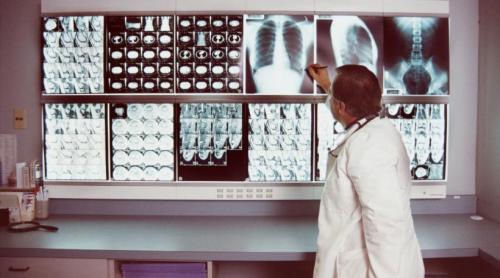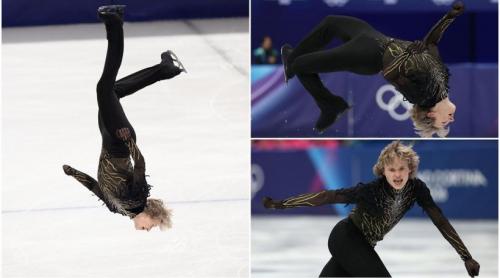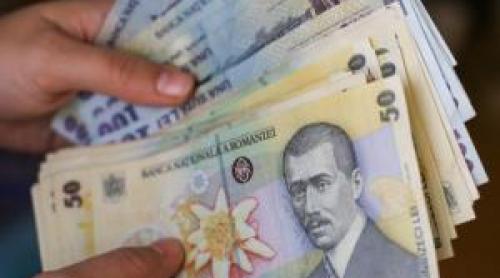
On the backdrop of low inflation (deflation), the National Bank of Romania (NBR) cut its reference interest rate with half a point, down to 20.75% from 21.25% previously, thus confirming a move anticipated by many.
The officials of the NBR reiterated that the monetary policy will stay prudent taking into account the growth in domestic demand (as proven by the 6.1% GDP growth in the first trimester of 2004) and in trade balance deficit.
This prudent policy is shown by a raise in real terms of the real interest rates (the difference between rates on credits and inflation); a steeper drop of inflation against interest rates on assets show a tightening of the monetary policy.
It is new this mix of accelerated economic growth and deflation, which call for a tight monetary policy and low budgetary deficits, while the balance of trade is beyond the attention mark. There are reasons for this.
The economy is for a number of years on an upward trend by way of an intensified capital formation (investment). The salaries in the budgetary sector - and not only there - grew substantially lately. Though interest rates for credits in lei are high, the option to get credits in hard currencies - for which interest rates are lower - fed the process of crediting the economy. From this standpoint the policy of NBR is toothless.
At the same time, the commercial banks put forth an array of financial products to meet the needs of credit seekers. Also worth noting is the influx of capital from abroad (including private transfers of over 2 billion euros, from Romanians working abroad), which heightened considerably the purchase power and the domestic investment. Year 2007 works like a powerful beacon! If we add to all the above the appreciation in real terms of the domestic currency against the euro and the dollar, one gets the picture of all the parts in the engine that moved forward the economy.
One cannot expect for a wide and steep drop in the interest rates of the NBR in the near future. Even though inflation in May (0.3%) shows a level of deflation in accordance with very optimistic forecasts, the Central Bank cannot turn a blind eye towards the development of the deficits in the balance of trade. Even though this year is said to be a good one for the agricultural sector, and the April balance of trade shows a flattening of the gap between exports and imports, to stay prudent will not hurt. This is particularly valid since in spite of a budgetary surplus during the first four months of this year, the government spending during the second half of 2004 for the electoral campaigns will place an extra-burden on the balance of payment.
To those who note our monetary policy it is worth mentioning that more relevant to it stays the intervention interest rate of the NBR, that is the interest rate which does away with extra money in the market. It is well known that the Central Bank is clearly indebted to the commercial banks; the intervention rate depends thus on the level of money the NBR wants to take out of the market.
This is why there are notable differences between the intervention and the reference rates.
For this reason when commercial banks ask the Central Bank for a sign the interest rates would drop, their plea is to be considered, as they borrow the NBR and not the other way around.
The spread between the two interest rates is large for a number of reasons: inefficiency of the banking sector with high costs for operating the banks, poor competition among banks, high level of minimum reserves requirements that the banks put into the NBR for small interest rates, risk premiums related to the perception of the domestic business environment, and last but not least, rent drawn by the banking sector from the business sector.
It follows that the drop of interest rates depends not only on a drop of inflation but also on a lowering of the gap between the interest rates raised on credits and deposits, respectively. The latter become more attractive due to a policy aiming at strengthening the leu against the hard currencies.
It is to be expected that the NBR monetary policy will became less unbalanced due to a raise of interest rates in the US (and even in Europe, in case the inflation will go up), which in turn will bring up the interest rates for hard-currency credits, and due to a drop in domestic interest rates on the backdrop of deflation.
The NBR will have a prudent approach in lowering its rates, taking into account the dynamics of the domestic demand and the need to keep under control the trade deficits. It is important for the domestic real interest rates (as the difference between rates on credits and inflation) to go down by way of a more competitive performance of the banking system.
Translation: ANCA PADURARU
Citește pe Antena3.ro


















